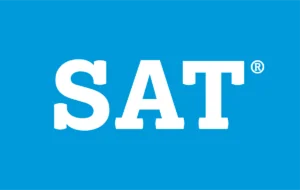In an age where artificial intelligence and the internet have become integral to our daily lives, the question arises as to why students continue to sit for traditional theory exams in colleges and schools. These exams, often seen as a rite of passage in academic institutions, may seem archaic in a world where information is just a click away and AI systems can process vast quantities of data with ease. What do Quora users think about it?

✅ AI Essay Writer ✅ AI Detector ✅ Plagchecker ✅ Paraphraser
✅ Summarizer ✅ Citation Generator
Key Takeaways:
- Despite its vast knowledge, AI cannot yet create new theories or solve original problems without human input, highlighting the irreplaceable value of human creativity and understanding.
- A strong theoretical background is essential for asking the right questions and interpreting information, especially in a world flooded with data of varying reliability.
- In the realm of exams, especially those that require complex thought processes, human evaluators are more adept at understanding and grading nuanced answers than AI.
The Limits of AI in Advancing Knowledge
Artificial intelligence has come a long way, but it has its limits. It’s great at sharing information that already exists, like a parrot repeating what it has heard. However, when it comes to creating new theories or solving brand-new problems, AI is not yet up to the task. This limitation came to light in a recent incident where an AI system was asked to tackle an original problem. Despite its vast database of knowledge, the AI couldn’t come up with a unique solution, revealing a gap that technology can’t bridge—at least for now.
“Only people who have strong theoretical backgrounds can address novel problems or advance knowledge.”
The main body of knowledge and innovation still heavily relies on humans, especially those with a strong grasp of theories. These individuals can think outside the box and understand complex issues in ways that AI currently cannot. They can see connections and possibilities that a machine, which only knows what it has been fed, might miss. The researchers from SRI tried to measure how much AI can really understand by referring to its conceptual consistency. In simple words, conceptual consistency means how well AI can understand the questions and make a follow-up on them. Turns out, with more advanced models the understanding of AI does grow, but it is a very slow process which still requires some sort of human involvement.
While AI is a powerful tool that can help us understand and utilize the knowledge we already have, it still can’t replace the creative and critical thinking humans use to discover new things. The human touch remains essential when venturing into the unknown and pushing the boundaries of what we know.
AI Is a Helpful Study Buddy, But Your Own Brain Is Better
In a world dominated by digital information, knowing what questions to ask is crucial for finding the truth. Recently, a technician faced a challenge: he needed to fix a complex system but found conflicting information online. This situation highlighted a significant issue: the reliance on the internet, which is full of both accurate and misleading data, can lead to confusion. To avoid such pitfalls, one must have a foundation of knowledge to even know where to begin asking the right questions.
“You need to know how things work in general so you can actually ask questions that will get you to the specific information you want. Now, also, too much reliance upon a very complex communications system like the Internet and servers that may or may not actually have accurate information contained upon them is a real problem.”
It becomes clear that understanding the basics of how things work is essential. Technicians, for example, must grasp the systems they repair and be able to interpret technical diagrams. These skills often come from formal education, where they learn the necessary ‘stuff’—the symbols and the math that make up the technical language.
The Internet cannot replace the need for a solid educational background. Knowledge of where and how to seek out information in the physical world remains a valuable skill. In our ever-advancing technological society, the ability to decipher complex information beyond the digital realm is indispensable.
Maybe Exams Should Also Be Graded by AI?
When it comes to taking exams, the classic classroom setting with a proctor has stood the test of time, especially for theory-based and skills testing. The presence of a proctor makes it harder for students to cheat, ensuring the integrity of the exam. This traditional method is particularly important when the exam involves complex answers, like essays or mathematical problems, where the path to the solution is just as important as the solution itself.
“The main reason for taking the exam in the classroom with a proctor in attendance is that it is more difficult for the student to cheat. If you are asking about the evaluation of student answers, if the responses are free form (essay or short answer) or require work leading to the answer to be shown (math, physics), human evaluation is still more effective at evaluating any responses that are partially correct or have more than one correct answer.”
Human evaluators excel in these scenarios because they can understand nuances and grade students with a level of judgment that AI and automated systems haven’t mastered yet. They can appreciate the effort behind a partially correct answer and recognize multiple valid solutions, which is often the case in subjects like math and physics.
The big question is how long until AI catches up? There’s a growing curiosity about when artificial intelligence will be able to evaluate free-form answers with the same—or greater—accuracy as human graders. For now, though AI is advancing, human evaluation remains the gold standard for exams that require a deep understanding of student knowledge and the nuances of their reasoning.
What Is More Important in the Real World? Skills vs Knowledge
The original post on Quora indirectly raises the question of how resilient knowledge vs skills would be in the real world. Obviously, you won’t be taking an exam every few months on the job, but you can’t build a house with zero foundation, right?
The UK College of Personal Development highlights the idea that it’s crucial not to lean too heavily on one side but to blend both approaches for a comprehensive learning experience. In the professional world, hands-on learning is indispensable as it directly demonstrates one’s capability to perform specific tasks. However, the role of theoretical knowledge cannot be understated. It’s the scaffold that supports the advancement and deepening of practical skills. Without a solid grasp of theoretical principles, one’s ability to evolve and innovate within a job is significantly limited.
Understanding the mechanics of a job is necessary to establish competence, but grasping the underlying principles—’the why’—is what truly enriches and expands your proficiency. This concept extends to leadership and mentorship as well; the drive to learn ‘how’ often precedes the understanding of ‘why’, yet it is the theoretical foundation that empowers a deeper comprehension and application of skills.
Follow us on Reddit for more insights and updates.





Comments (0)
Welcome to A*Help comments!
We’re all about debate and discussion at A*Help.
We value the diverse opinions of users, so you may find points of view that you don’t agree with. And that’s cool. However, there are certain things we’re not OK with: attempts to manipulate our data in any way, for example, or the posting of discriminative, offensive, hateful, or disparaging material.